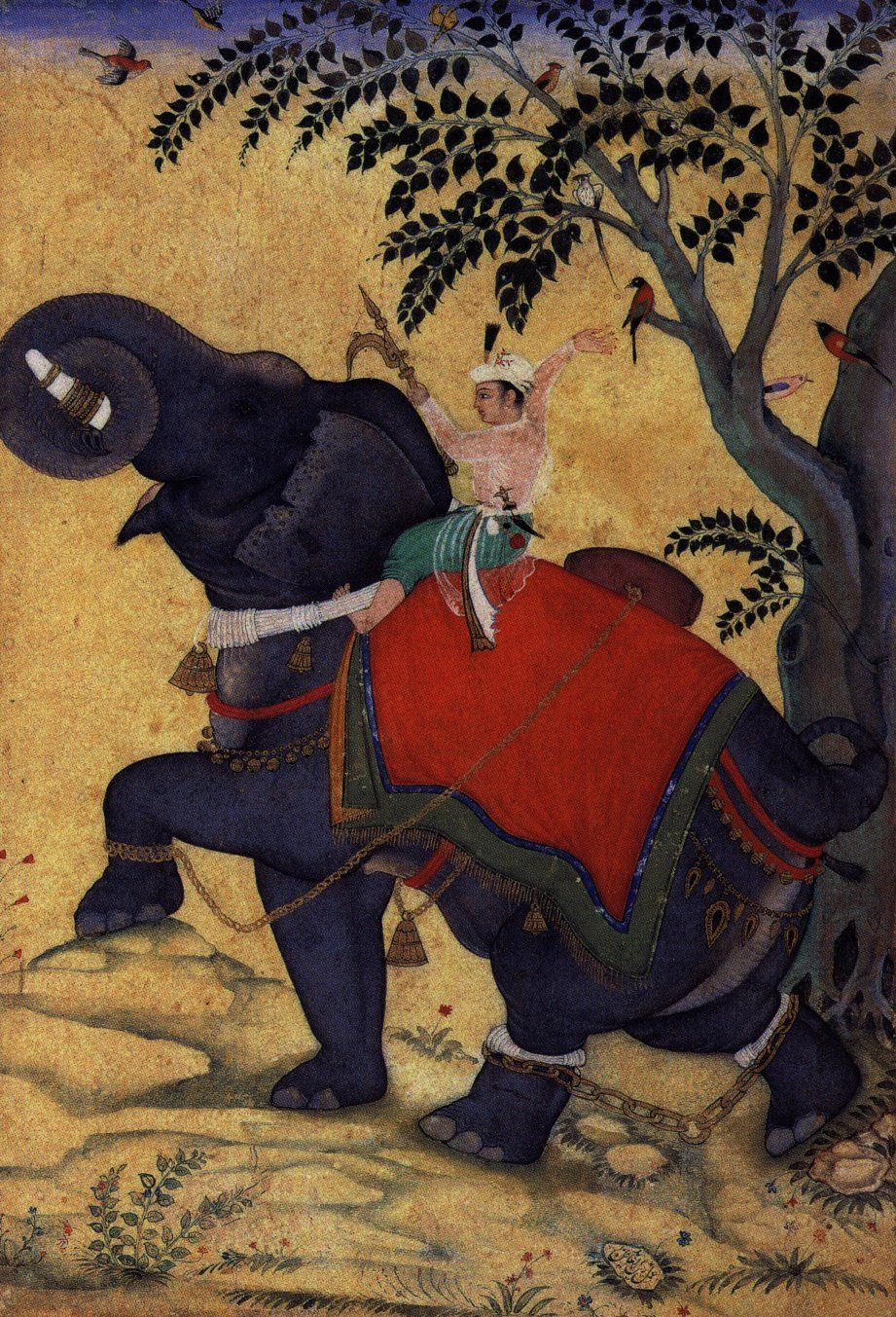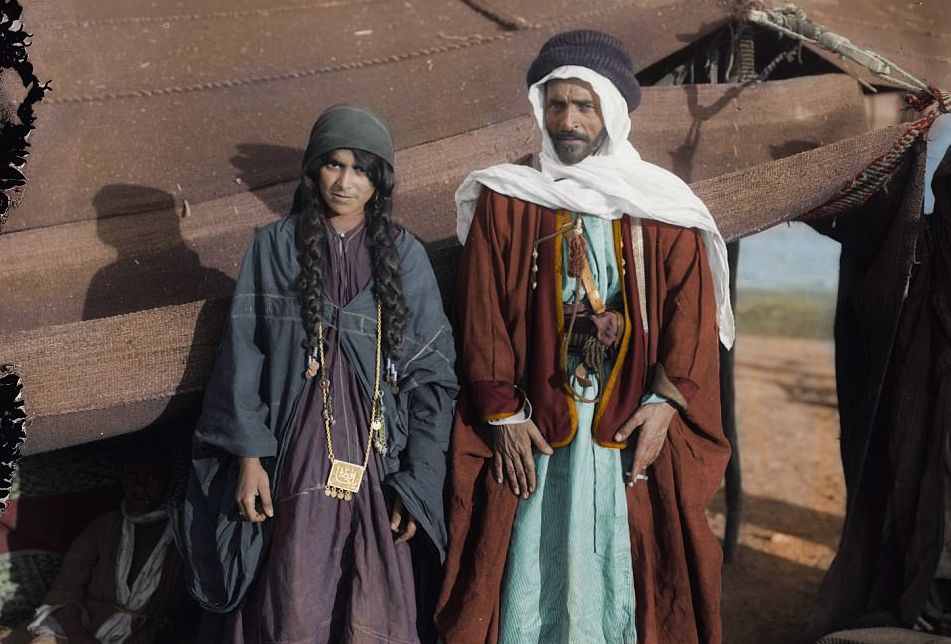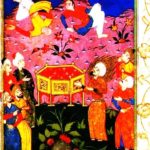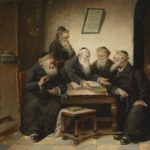This surah encodes one of two folktales about why Mecca was spared from King Abraha’s expedition, which the people of Mecca found most memorable because King Abraha was said to have an elephant.
This is how the event is recounted in the Quran:
- Have you not seen how your Lord dealt with the companions of the elephant?
- Did he not make their scheme go astray?
- And he sent against them birds in swarms.
- They pelt them with stones of baked clay.
- Then he made them like eaten straw.
The inane story in the Islamic tradition is that the entire war was sparked by a man of Banu Kinana defecating in and smearing a virgin’s blood in the cathedral in Sana’a that Abraha had built solely to divert people from the Kaaba, so Abraha then swore vengeance on all the polytheists of Mecca and was determined to destroy the Kaaba.
Of course, we have a record of one expedition that occurred very shortly before Abraha’s death against the northern Arabs, and there’s no reference to even the slightest awareness of the existence of Mecca or the Kaaba, nor was there any kind of religious vendetta involved in the expedition, nor is there the least shred of evidence that the cathedral was, in fact, defiled by anyone. (The perpetrator is always anonymous, and the exact number of perpetrators changes in different stories, and so does the form of defilement.) It’s a very Arab story, full of honor and shame and insult and pride, and also very nonsensical for anyone not a barbarian–non-Arabic kings simply did not behave in this way. The campaign was a large one and involved multiple armies going against multiple tribes, and the reason given was simply the insurrection of some Arab tribes against the king of Yemen. The king records that the expedition was successful–and certainly, his son would succeed him securely on the throne–but Abraha died soon after it. If the Islamic sources are to be believed, he may have caught a disease on the campaign, but these are, of course, entirely unreliable.
There are two reasons preserved in Islamic folklore about why Mecca wasn’t attacked directly. (The simple fact that Abraha couldn’t give two hoots about the Kaaba, even if he was aware it existed, which he probably wasn’t, never crossed their minds, because to the Quraysh, the Kaaba was the center of the world.) The first story was that a man promised to lead Abraha to Mecca but was actually a double agent, and then he used pagan magic to hex the elephant that led the expedition into kneeling down when he was led toward Mecca. In consternation, feeling cursed by this sign, Abraha retreated. (Other traditions declare that there were 100,000 elephants instead of one, but this doesn’t really work with any story.)
The second story is this one–that Allah sent flocks of birds with hard clay balls to drop on the army, slaughtering most of it and causing the rest to retreat in confusion. Islamic tradition holds that the pieces of clay were between the size of a pea and a goat’s dropping–very small–and yet devastated the army. The army, of course, was perfectly fine and returned to Yemen intact after the expedition to the north.
Both traditions are absurd for someone who claims to follow the same God of the Christians and Jews to repeat. The first tradition is thoroughly pagan and is only lightly glossed with an anachronistic Islamic paint. The second tradition was probably invented in this very surah to provide a rival to the first legend–instead of a pagan magic-worker, it was now the work of Allah to preserve the Kaaba.
This would have been a response of Muhammad to pagan Meccans who said that their polytheism is correct and his monotheism is wrong because the gods protected the Kaaba against a Christian king.
But Muhammad’s response doesn’t actually make sense. If the miraculous preservation of the Kaaba took place, the pagans were still right. The Kaaba was a pagan shrine, and the supposed triggering insult was one of pagans against monotheists, and yet this casts the One God taking the side of pagans against monotheists. It’s absurd and ridiculous, but it’s used to prove that the Black Stone of the Kaaba is so very sacred to Allah that he would destroy anyone who transgressed against it, and also to assure the Quraysh of their special position in Allah’s favor, as the tribe of Muhammad. The superiority of the Arab over all other races and the Quraysh over the Arab is a frequent theme of the Islamic sources, so as theologically incoherent as it is, this story fits in with Muhammad’s worldview. Muhammad would rail against polytheism but would still assert that the pagans Quraysh are the most superior tribe in the world.
If you want to learn more about historical Yemen and Abraha, check out this article.






